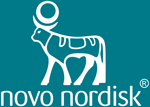Our FAQS are here to answer any immediate questions you may have. Still need further
clarification? Don’t hesitate to contact us!
The Obesity Policy Engagement Network (OPEN) is a global network of national coalitions, consisting of policy makers, economists and payers, public health and patient representatives, created in response to the urgent need to take concerted action to address the obesity crisis.
The OPEN network launched at ObesityWeek 2018, with initial involvement from Australia, Canada, Germany, UK and the US.
OPEN was established by the founding partners: World Obesity Federation (WOF); European Association for the Study of Obesity (EASO)The Obesity Society (US); Obesity Action Coalition (US); Novo Nordisk
Overall the goal of OPEN is to identify and support the implementation of a whole-systems approach that effectively addresses the causes of obesity and ensure people living with obesity have access to effective treatment and management of their disease throughout their life course.
Specifically, the network seeks to explore and address the following critical areas of focus:
• Obtain governmental, clinical and public recognition of obesity as a chronic relapsing disease to ensure responsibility moves from individual to shared
• Review and optimise allocation of healthcare resources to secure funding for care
• Integrate obesity to learning curricula across obesity-related professions to support more effective, informed care
• Establish multidisciplinary obesity centres and ensure access to transdisciplinary care for people with obesity
The 21st century faces an obesity epidemic. Worldwide, obesity has tripled since 1975 and in 2016, more than 1.9 billion adults were overweight, of which 650 million had obesity.1
Obesity is a complex chronic disease with multiple causes which requires long-term management.2,3 Without intervention, the obesity epidemic is set to rise, and the substantial economic costs will continue to increase and place an unprecedented burden on healthcare systems and society at large 4. People living with obesity have a decreased life expectancy5, increased risk of multiple complications6, and experience detrimental effects on mental health and social interactions.7
To address the complex nature of obesity and help to reverse the obesity epidemic, the Obesity Policy Engagement Network (OPEN) – a global network of national coalitions, consisting of policy makers, economists and payers, public health and patient representatives – was formed.
OPEN was established by the founding partners:
• World Obesity Federation (WOF)
• European Association for the Study of Obesity (EASO)
• The Obesity Society (US)
• Obesity Action Coalition (US)
• Novo Nordisk
Currently, the following countries are involved in OPEN Global:
• Australia
• Brazil
• Canada
• Germany
• Italy
• Israel
• Mexico
• Spain
• US
• UK
OPEN Gulf
An inaugural meeting of OPEN Gulf took place in October, with attendance from the following countries:
OPEN EU
Following an interested parties’ workshop on 6th February, OPEN EU was launched on 4th March.
As part of the launch, OPEN EU delivered a manifesto, calling for a new approach and the priority actions needed to improve the treatment and management of obesity at an EU level, aligned to the four key focus areas of OPEN Global.
If you are interested in getting involved in OPEN, email the Secretariat using the contact form here.
Currently, OPEN is led by the founding partners (as outlined in the OPEN background section above) alongside a Global Guidance Committee which has been nominated by the national OPEN groups.
The Global Guidance Committee includes a representative from each of the member countries as well as the partner organisations who founded OPEN. The role of the Global Guidance Committee is to:
• Provide strategic direction to guide OPEN including how the core focus areas can be addressed
• Help OPEN to identify and prioritise capacity building requirements
• Identify opportunities to partner on various relevant outputs to be leveraged nationally by each coalition
• Ensure the OPEN meetings are as useful and relevant as possible for delegations, including providing input into the upcoming meeting agendas
All OPEN members have the opportunity to input on the decisions of the OPEN Global Guidance Committee and partners at meetings.
1 World Health Organization. 2018. Obesity and overweight. [Online] Available at: http://www.who.int/mediacentre/factsheets/ fs311/en/ [Accessed October 2018].
2The Canadian Medical Association. 2015. CMA recognises obesity as a disease [Online] Available at https://www.cma.ca/En/Pages/ cma-recognizes-obesity-as-a-disease.aspx [Accessed October 2018]
3American Medical Association House of Delegates, 2013. Recognition of obesity as a disease. Resolution 420 (A-13). 16th May 2013. Chicago, USA.
4Kelly, T et al. 2008. Global burden of obesity in 2005 and projections to 2030. International Journal of Obesity. 32: 1431-1437
5Prospective Studies Collaboration. 2009. Body-mass index and cause-specific mortality in 900 000 adults: collaborative analyses of 57 prospective studies, Lancet; 373(9669): 1083-96
6Agborsangaya, C.B., et al. 2015. Multimorbidity in a prospective cohort: prevalence and associations with weight loss and health status in severely obese patients. Obesity (Silver Spring); 23(3): 707-12.
7S. Lewis et al. 2011. How do obese individuals perceive and respond to the different types of obesity stigma that they encounter in their daily lives? A qualitative study. Social Science & Medicine; 73: 1349-56






